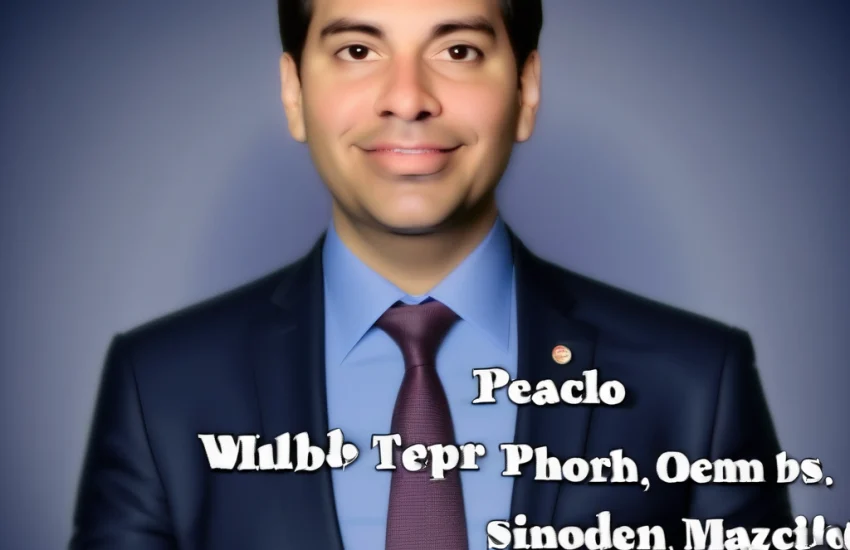Marco Rubio, the senior United States Senator from Florida, has established himself as a prominent voice in American politics through his statements on various domestic and international issues. His quotes often reflect his perspectives on American values, foreign policy, and economic opportunity.
“We are the greatest country in the history of mankind because here in America, dreams that are impossible anywhere else come true.” This signature statement encapsulates Rubio’s emphasis on American exceptionalism and his personal narrative as the son of Cuban immigrants. The quote frequently appears in his speeches about opportunity and the American dream.
“My parents achieved what is still known as the American dream. But now too many Americans are starting to doubt whether achieving that dream is still possible.” This reflection on economic mobility demonstrates his focus on middle-class concerns and economic opportunity. The statement connects his personal story to broader policy discussions about economic advancement.
“China is not our partner. China is our competitor.” This direct statement on U.S.-China relations reflects his hawkish stance on foreign policy and international trade. As a member of the Senate Foreign Relations Committee, his statements on China carry particular weight in policy discussions.
“What we need is not just a strong military, but also a strong society and a strong economy.” This comprehensive view of national security demonstrates Rubio’s broader perspective on American strength. The quote reflects his belief that domestic and international policies are interconnected.
“The fundamental problem with the immigration system in America is that it serves the needs of wealthy donors, of activists, of politicians, everyone except those of the American people.” This critique of immigration policy shows his evolution on the issue and his emphasis on reform that prioritizes American interests.
“We don’t need new taxes. We need new taxpayers, people that are gainfully employed, making money and paying into the tax system.” This economic perspective demonstrates his approach to fiscal policy and growth. The statement emphasizes job creation over tax increases.
“Twenty-first century businesses will rely on American science, technology, research and development. I want the next big innovations to be made here in America.” This focus on innovation and economic competitiveness shows his vision for American economic leadership. The quote reflects his support for research and development initiatives.
“The reason socialism failed is not because it failed to build a rational system of economic planning. It failed because it tried to go against human nature.” This critique of socialist policies demonstrates his strong free-market stance. The statement reflects his opposition to expanded government economic control.
“Water is going to be the oil of the 21st century.” This perspective on environmental resources shows his recognition of emerging challenges. The quote demonstrates his awareness of future resource competition and environmental concerns.
“When was the last time you heard about a kid getting shot in a school run by the Catholic Church? The family unit is the foundation of society.” This statement on social institutions reflects his emphasis on traditional values and social structures. The quote shows his support for faith-based institutions and family values.
“America is not just a country. It’s an idea.” This philosophical statement about American identity demonstrates his view of the nation’s unique role. The quote emphasizes American values and principles over mere geography.
“Free enterprise has done more to lift people out of poverty than all the government anti-poverty programs combined.” This economic philosophy shows his commitment to market-based solutions. The statement reflects his opposition to expanded welfare programs.
“Our culture has accepted two huge lies: The first is that if you disagree with someone’s lifestyle, you must fear or hate them. The second is that to love someone means you must agree with everything they believe or do.” This social commentary reflects his perspective on cultural debates and civil discourse.
“We must ensure that our foreign policy matches our capabilities.” This perspective on international relations demonstrates his pragmatic approach to foreign affairs. The quote shows his emphasis on realistic foreign policy goals.
“Every single human being is entitled to dignity and respect, no matter their race, gender, status or stage of life.” This statement on human dignity reflects his moral framework and policy approach. The quote demonstrates his perspective on fundamental human rights.
“The American Dream is not about how many zeroes you have in your bank account. The American Dream is about the opportunity to work hard and get ahead.” This definition of success reflects his emphasis on opportunity over outcomes. The statement shows his vision of American prosperity.
His statements on policy often combine personal experience with broader principles. Whether discussing foreign policy, economic opportunity, or social issues, Rubio’s quotes typically reflect his conservative principles while acknowledging contemporary challenges.
These quotes must be understood within their political and temporal context. As a prominent Republican voice, his statements often align with conservative positions while maintaining his distinctive emphasis on opportunity and American renewal.
The influence of his statements extends beyond immediate political debates to shape public discourse on various issues. His quotes frequently appear in media coverage and policy discussions, contributing to broader political conversations.
Rubio’s evolution as a political figure is reflected in his statements over time. From his early emergence in Florida politics to his current role as a senior senator, his quotes demonstrate both consistency in core principles and adaptation to changing circumstances.
Understanding these quotes requires considering both their immediate context and their broader implications for American political discourse. Whether viewed as strategic communication or genuine conviction, these statements have significantly influenced contemporary political debates about America’s future.
